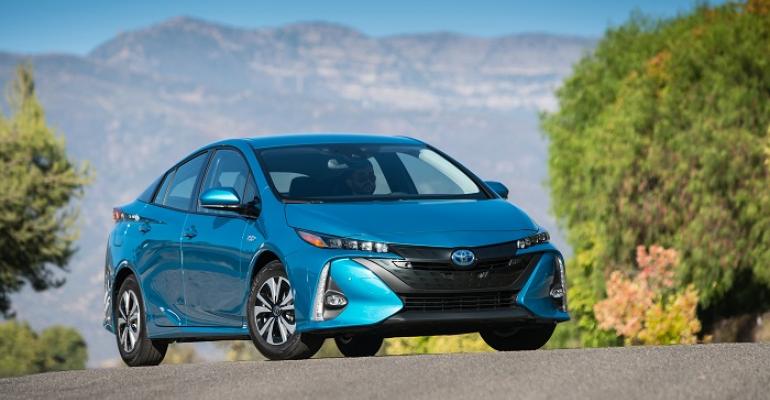Toyota, Mazda and Denso agree to jointly develop basic structural technologies for electric vehicles in what they say is a bid to respond to market trends with speed and flexibility.
The two automakers and the parts supplier also will establish a new company, EV C.A. (Common Architecture) Spirit Co. Based in Nagoya, Japan, the company initially will consist of about 40 selected engineers from the three companies to ensure the efficient implementation of the joint technology-development projects.
The agreement covers a range of models, from minivehicles to cars, SUVs and light trucks, and will combine the strengths of each company, including Mazda’s bundled product planning and expertise in computer modeling-based development, Denso’s electronics technologies and Toyota’s New Global Architecture platform.
Toyota will have a 90% stake in the venture, with Mazda and Denso – Toyota’s biggest supplier – holding 5% each.
“With EVs yet to find widespread market acceptance, the huge investments and time required to cover all markets and vehicle segments is a pressing issue for individual automakers when responding to the widely varying demand for vehicles around the world,” the companies say in a news release.
“Through this joint technological development project, by dedicating an equal amount of development resources, ensuring efficient development processes and taking advantage of existing production facilities, Mazda and Toyota intend to focus their resources on fundamental vehicle values to enable the creation of appealing EVs that embody the unique identities of each brand and avoid the commoditization of EVs.”
“The companies also aim to create a business structure that is open to participation by other automakers and suppliers,” the release says.
Neither Toyota nor Mazda manufactures an all-electric vehicle, although Toyota dominates the global market for hybrid-electric vehicles.
Ben Schlimme, powertrain executive program manager-Advanced Planning and Research, Toyota Motor North America, said at the MBS automotive conference in Michigan in August that the automaker has a business plan for battery-electric vehicles but did not offer details.
At the same conference, Robert Davis, senior vice president-special assignments-Mazda North American Operations, said the automaker did not believe electrified propulsion would supplant internal-combustion engines and related powertrain components anytime soon.
“Before we go to the time, effort and expense of adding electrification, we are convinced that a solid, efficient internal-combustion engine base is critical,” he said.





